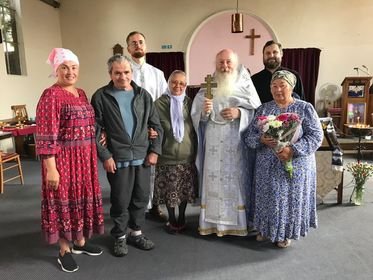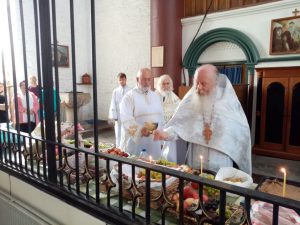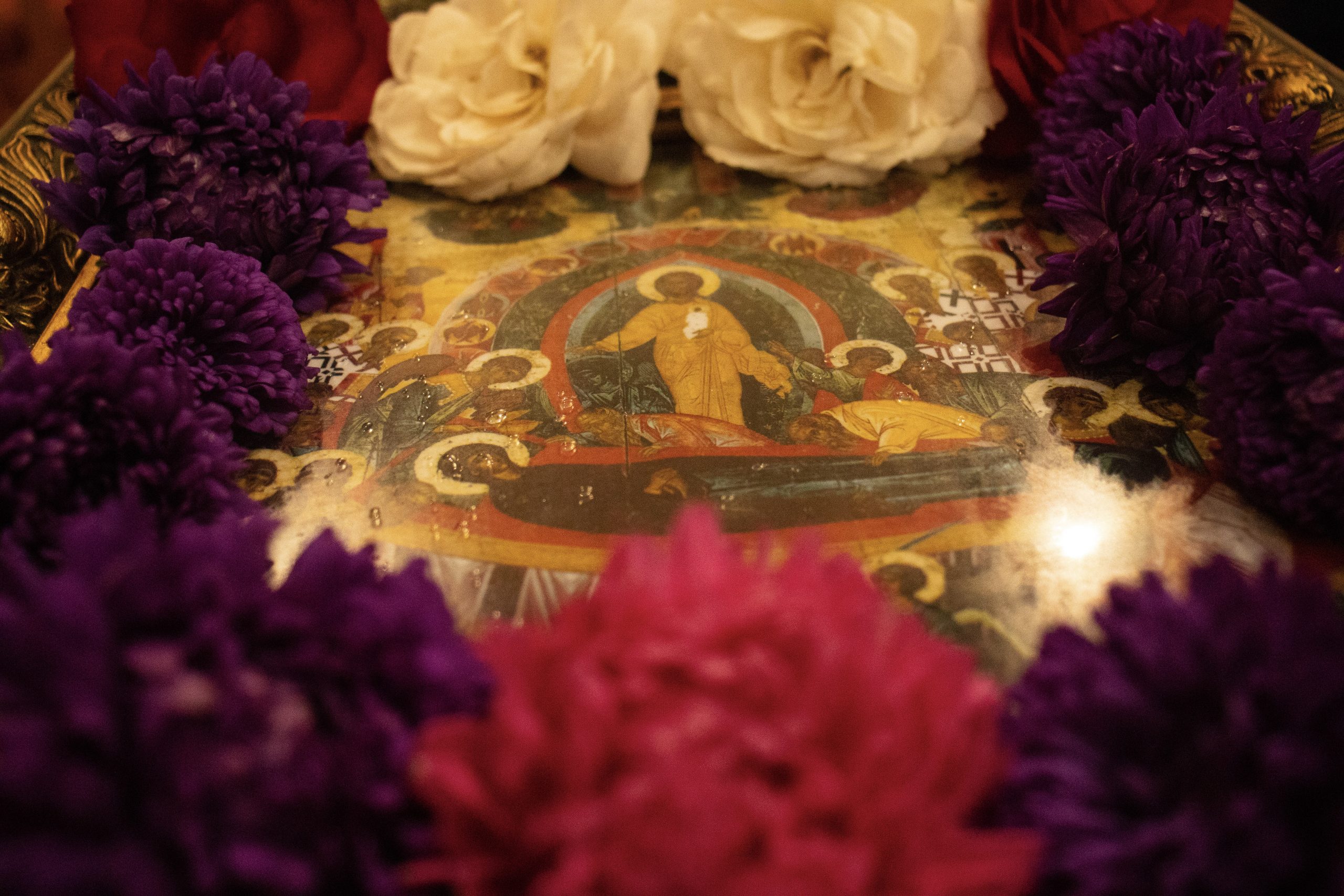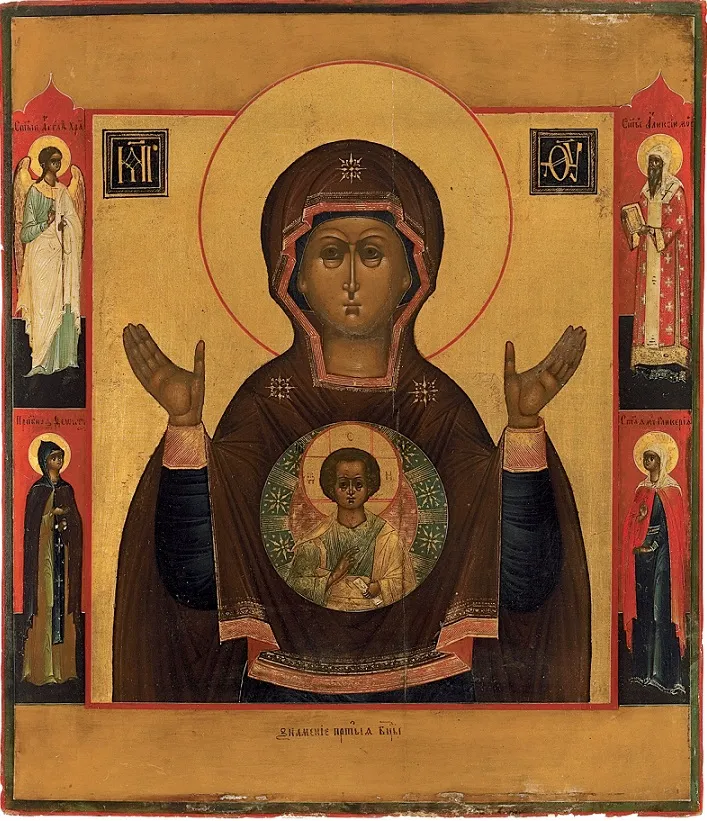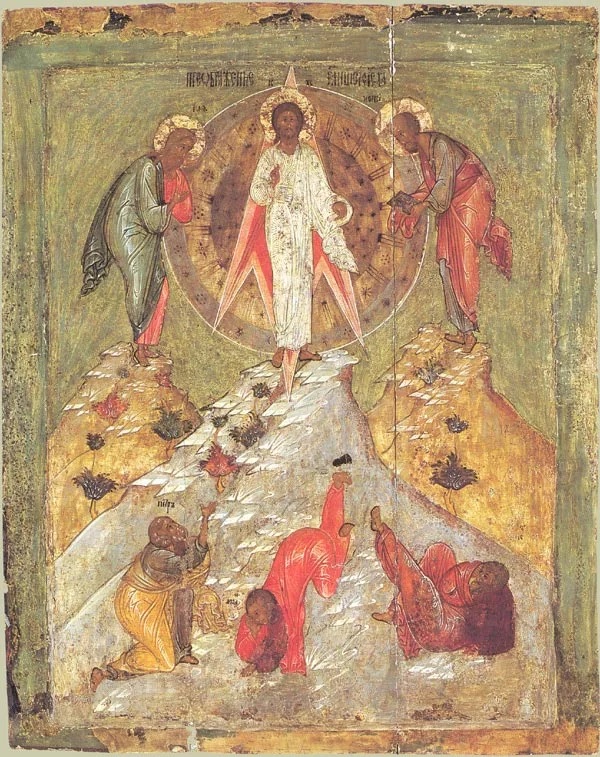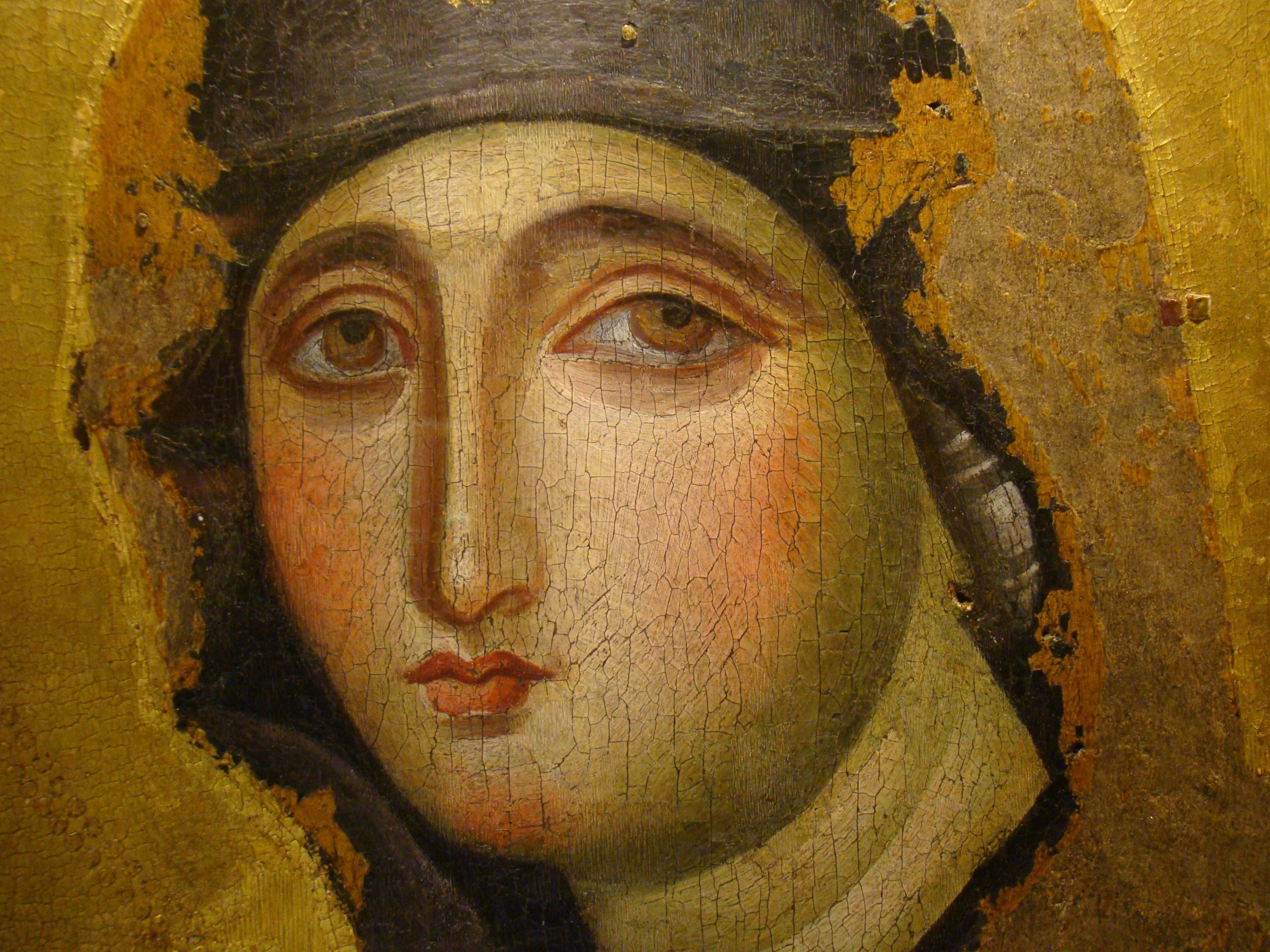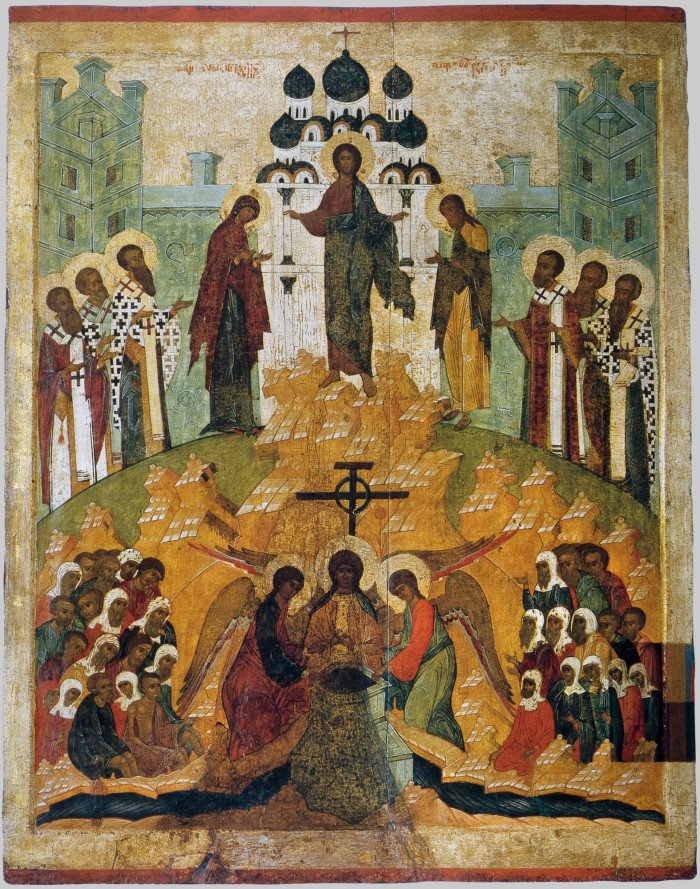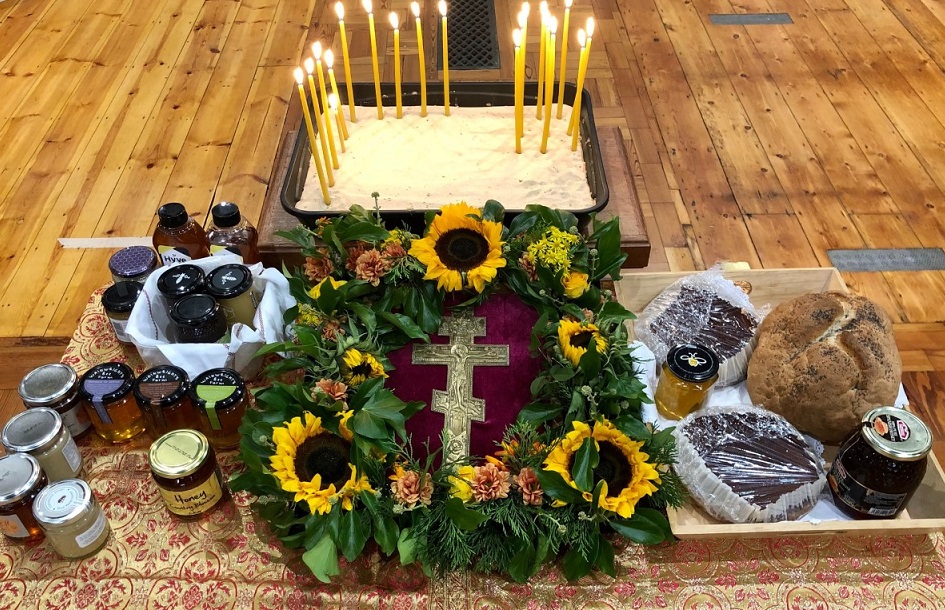This evening, we chanted vespers for the Meeting of the Vladimir Icon of the Most Holy Mother of God in the little chapel of St David and St Nicholas, at Father Luke’s home, in Llanelli.
The feast commemorates the meeting of the icon on its journey from Vladimir to Moscow, and the salvation of Muscovy from the Islamic army of Khan Tamurlane in 1395.
The icon left the ancient capital after the celebration of the feast of the Dormition and the chronicles relate that as the icon was received at the gates of Moscow the Mother of God appeared to the Khan in a dream, after which the superstitious and frightened ruler ordered the retreat of the Tatar armies.
The feast also coincides with the celebration of the Holy Martyrs Adrian and Natalia, and whilst we may have no Adrians, we have our Nataliya’s to congratulate – in Penarth, Llanishen, Wenvoe, Cheltenham, Newquay, Bristol and Melbourne!
We congratulate all of our sisters on their nameday, and pray that God may grant them ‘Many, Blessed Years!
Многая и благая лтѣа!
In the fourth century, the pagan Roman Emperor Maximian cruelly persecuted those who believed in Christ. He came together with his soldiers to the city of Nicomedia in Asia Minor. There it was reported that in a certain cave Christians were hiding, and that they sang and prayed the whole night to their God. Immediately Maximian sent his soldiers to seize these Christians. The soldiers did as they were commanded and the Christians were beaten and brought in iron chains to the place of judgment.
One of the chiefs of the judgment place, a young man by the name of Adrian, seeing how patiently and how willingly the Christians suffered for their faith, asked what reward they expected to receive from their God for such tortures. The holy martyrs replied: “It is written in Scripture that eye hath not seen, nor hath ear heard, nor hath it entered the heart of man those things which God hath prepared for those who love Him” (I Cor. 2:9). Hearing these words, Adrian declared that he too wished to be a Christian and was willing to die together with them for Christ. For this he was also thrown into prison.
When Adrian’ s young wife Natalia was told of her husband’s conversion to Christ and of his imprisonment, instead of being sad, she greatly rejoiced for she was secretly a Christian herself and she knew the joy which now filled her husband’s heart. She ran to the prison and, falling down at the feet of her husband, she kissed his chains and said, “Blessed are you, my Adrian; you have found such a treasure.” When Adrian was brought before the Emperor and threatened with torture if he did not worship the pagan gods, his godly-minded wife Natalia and the other martyrs encouraged him saying: “Having been found worthy to carry your own cross and to follow Christ, take care that you do not turn back and lose your eternal reward.”
Adrian had always faithfully served his earthly king, but now he was to serve the King of Heaven. He courageously endured the tortures and was returned to the prison. There Natalia, together with other pious women, would come and help the prisoners, cleaning and bandaging their wounded bodies. When the cruel Emperor found out about this, he forbade them to visit the prison. But the blessed Natalia had such love for the sufferers that she cut her hair and put on men’s clothing. In this disguise she was able to enter the prison.
Day after day the holy martyrs endured such cruel and severe tortures that they were barely alive. The Emperor became angry that even under such tortures they would not deny their God. Finally he ordered for them a violent death. Their arms and legs were cut off and their bodies were thrown into a fire to be burned so that none of the Christians might gather their precious remains. But just at that moment, there burst forth thunder and lightning and a powerful rain which put out the fire. Natalia, together with other Christians took the bodies of the holy martyrs from the fire and rejoiced to see that God had preserved them from harm. A faithful Christian man and his wife then took the holy relics to Constantinople where they could be safely kept until the death of the impious Emperor.
After a certain time, a pagan nobleman desired to marry Natalia who was still young and beautiful. She cried and begged God to save her from this union with an unbeliever. Having prayed fervently, St. Natalia fell from exhaustion and sorrow into a light sleep during which the holy martyrs appeared to her in a vision and said, “Peace be unto you. God has not forgotten your labours. We shall pray that you will come to us soon. Get on a ship and go to the place where our bodies are and the Lord will make Himself known to you.”
Following their directions, the blessed Natalia reached Constantinople and going to the church where the bodies of the holy martyrs lay, she fell down before them and prayed. She was so tired from the journey that she fell asleep and saw in a dream her husband St. Adrian, who said to her, “Come my beloved, and enjoy the reward of your labours.” Very soon after this St. Natalia died peacefully in her sleep. Although she did not shed her own blood, she is numbered among the martyrs for having co-suffered with them, serving and encouraging them in their heroic struggles for the sake of Christ.
Martyrs Adrian and Natalia, Troparion in Tone IV: In their sufferings, O Lord, Thy martyrs received imperishable crowns from Thee our God; for, possessed of Thy might, they set at nought the tormentors and crushed the feeble audacity of the demons. By their supplications save Thou our souls.
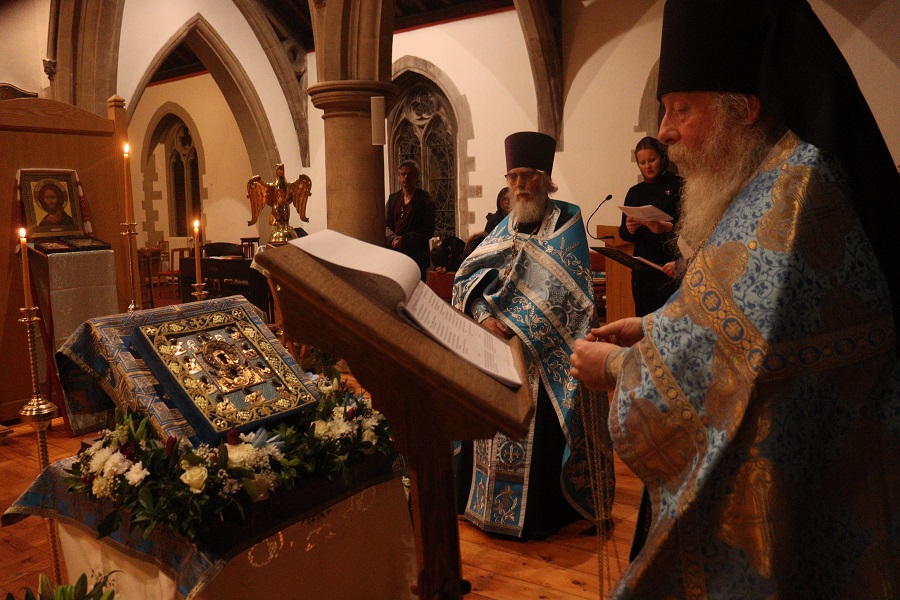
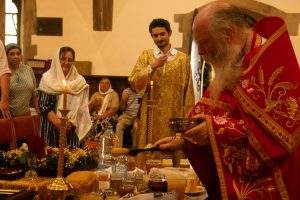
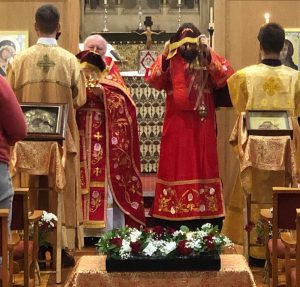
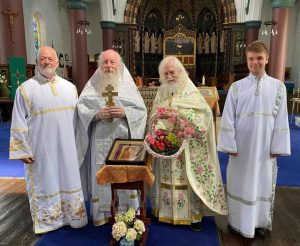

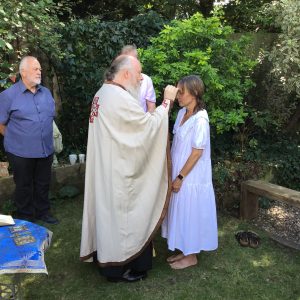
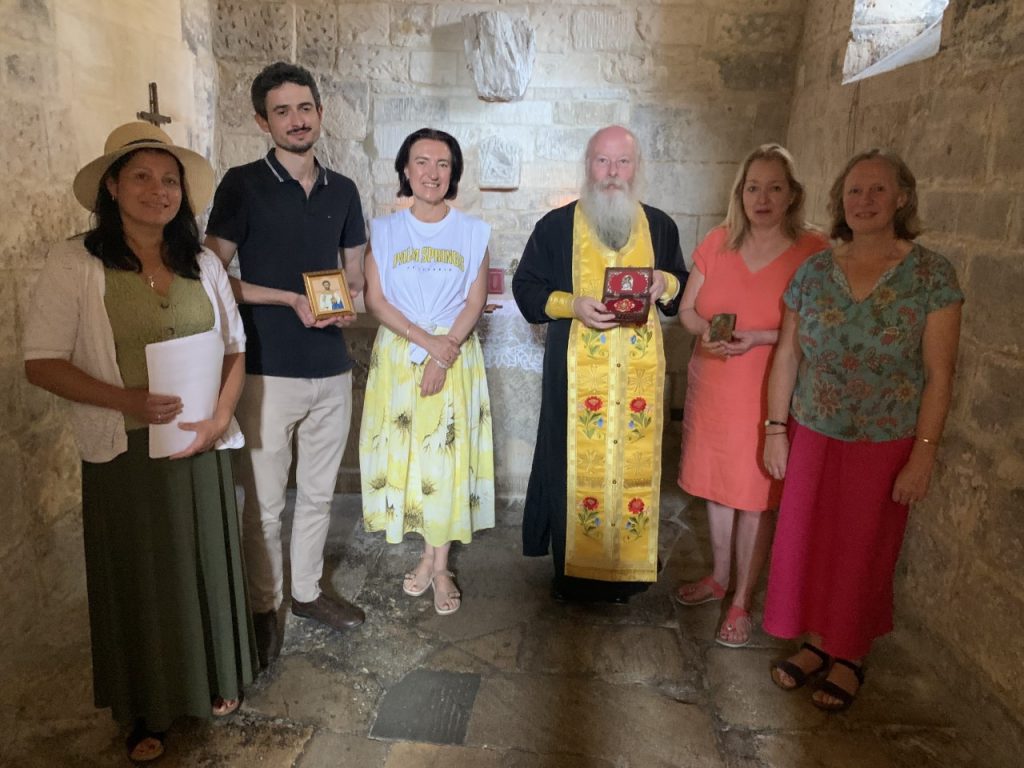
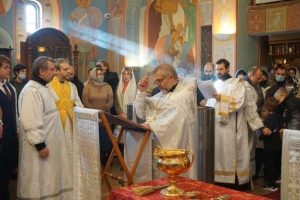 Deacon Mark and I have also served in the cathedral during the year, concelebrating at some of the great feasts, including the altar-feast of the Nativity of the Mother of God and being part of a parish group who celebrated Theophany in the cathedral, where – for once – I had the pleasure of blessing the faithful with copious amounts of holy water. Following the ROCOR tradition, I also concelebrated the Mystery of Holy Unction (Soborovanie) and the Liturgy of Holy and Great Thursday with Bishop Irenei and the clergy of the diocese during Holy Week, with the beautiful rite of the washing of the feet.
Deacon Mark and I have also served in the cathedral during the year, concelebrating at some of the great feasts, including the altar-feast of the Nativity of the Mother of God and being part of a parish group who celebrated Theophany in the cathedral, where – for once – I had the pleasure of blessing the faithful with copious amounts of holy water. Following the ROCOR tradition, I also concelebrated the Mystery of Holy Unction (Soborovanie) and the Liturgy of Holy and Great Thursday with Bishop Irenei and the clergy of the diocese during Holy Week, with the beautiful rite of the washing of the feet.